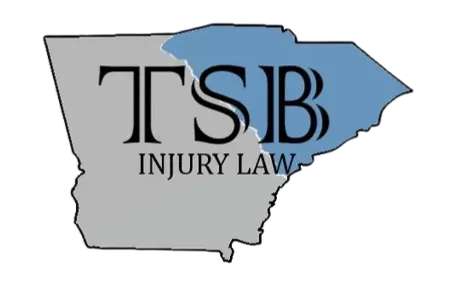Most personal injury lawsuits settle out of court. This is the ideal result because it saves the injury victim substantial time and stress while speeding up the timeline to receive compensation.
However, it is only the best choice if the at-fault party’s insurance company makes a fair settlement offer. In far too many cases the insurer makes a low offer in hopes that the victim will accept it for the sake of being done with the process. Don’t make this mistake. The Law Office of Taylor S. Braithwaite explains how to counter an insurance settlement offer that doesn’t fairly compensate you for your losses.
Do You Have to Accept the Initial Offer?
Accident victims may feel pressured to accept the initial offer they receive from the defendant’s insurance company. But the truth is that there is no obligation to do so. You may have these and other perfectly valid reasons to instead reject the offer:
- The offer does not account for all of your current damages
- The offer does not account for all of your future reasonably anticipated damages
- You don’t yet know what your future damages may be
- You haven’t reached maximum medical improvement
- You don’t agree with the insurer’s determination of your losses
- You believe the facts warrant a higher settlement amount
- You believe the at-fault party should pay punitive damages
- You believe the insurance company simply wants to avoid paying what it owes
Signs That the Initial Offer May Be Too Low
If you aren’t sure whether the insurance company’s offer is too low, these are a few possible signs to consider:
- The offer is made almost immediately after the accident: Insurance companies act quickly when they fear a victim may consult a lawyer or a doctor who advises them of their rights and their medical condition. A quick offer likely evidences an intent to avoid a fair settlement.
- The offer includes vague promises: The initial offer may be for the insurer to pay “reasonable” or “necessary” expenses, both of which are poorly defined. To sweeten the deal and convince you to ignore these vague terms, the insurance company may promise a flat dollar amount for pain and suffering.
- The insurance company pressures you to accept: Insurers use several pressure tactics like meeting victims at the hospital unannounced, saying the settlement is only available for an unreasonably limited amount of time, or telling the victim he or she doesn’t need to speak with a lawyer.
- The insurer ignores or downplays evidence: You may have submitted medical bills justifying your damages, only to be told they aren’t reliable. Any attempt to marginalize or dismiss your evidence probably means the insurer doesn’t take your claim seriously.
- The insurance company blames pre-existing conditions: If you are being told that you already had a particular injury, the insurer is signaling that it doesn’t believe your claim is worth much. The insurance company isn’t your doctor and is in no position to dismiss your injuries in this way.
Why Do Insurance Companies Try to Coerce Lowball Victims?
The insurance adjuster you speak or communicate with may come across as sympathetic to your injuries. However, at the end of the day, the insurer is a for-profit business. The company has a financial incentive to offer the lowest possible settlement amount it can get away with.
If you were to accept the initial offer, it will include releases that will prevent you from trying to renegotiate more compensation later. When insurance companies settle claims they make sure they can never be challenged again. The problem is that you may not yet realize the true value of your case or the severity of your injuries. It won’t matter though; once you sign, you release the insurer from having to pay you more.
Don’t feel like you have to take the initial offer; talk to an experienced personal injury attorney first.
What Happens When You Reject an Insurance Settlement Offer?
The purpose of rejecting an initial settlement offer is to hopefully negotiate a higher amount. If you do so, the insurer may refuse further negotiation. This is designed to communicate a “take it or leave it” attitude that in many cases successfully pressures victims into changing their minds and accepting the offer. The insurer is hoping that you believe the offer is the best possible outcome and that you’ll accept it.
If the insurer takes this approach, it will be your lawyer’s job to acquire the evidence needed to file a personal injury lawsuit. This forces the insurer to either go back to the negotiating table or risk losing substantially in court. Either way, your attorney will be prepared to take your case in front of a jury and demand the maximum amount of damages.
How to Properly Respond and Make a Reasonable Settlement Counteroffer
Rather than simply reject the initial offer, it’s a good idea to make a settlement counteroffer. This is technically a rejection of the insurance company’s settlement proposal but it also gives the insurer a concrete number to work with. While it’s possible the insurer will still refuse to negotiate, you are more likely to reach a fair settlement with a counteroffer.
Retaining an attorney is key to this process because a settlement counteroffer is not simply an arbitrary dollar figure. Your lawyer will assist with these critical steps:
- Investigating the accident to show that the insurance company’s policyholder was at fault
- Obtaining evidence related to your losses, such as your medical bills and lost earnings
- Consulting with an expert witness to make reasonable projections about future damages
- Writing a detailed counteroffer that accurately summarizes the nature of your damages
- Citing any necessary legal authority to refute the insurance company’s attempt to lowball you
- Helping the insurer understand that a higher settlement amount is reasonable and fair
Our Aiken, SC Personal Injury Team is Ready to Serve You
Successful insurance negotiations are a matter of strategy aimed at maximizing your compensation. If you’ve received a settlement offer that’s too low, or you aren’t sure whether it is, it’s time to speak with a personal injury lawyer. Attorney Taylor Braithwaite is an experienced negotiator but also a litigator who is ready to take your claim to court if necessary. Reach out to TSB Injury Law to get started on your case today, at (803) 220-0000 or online.



